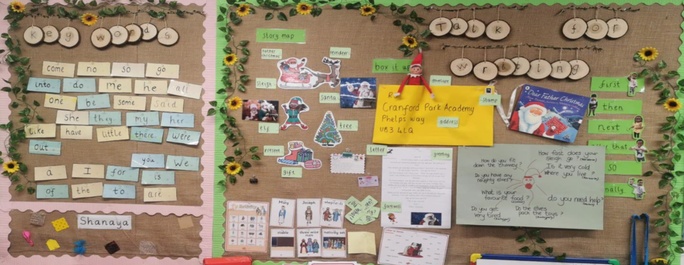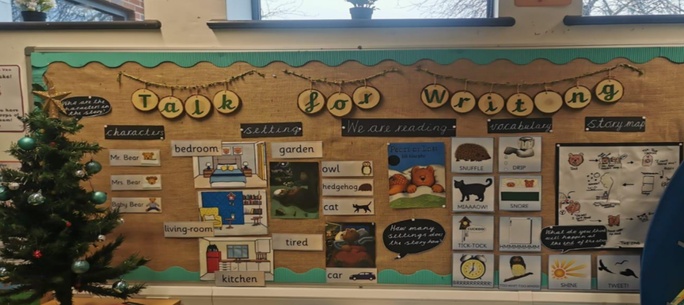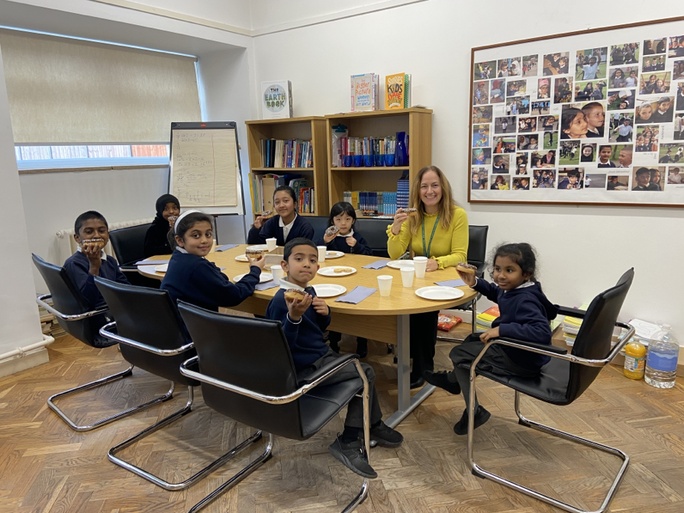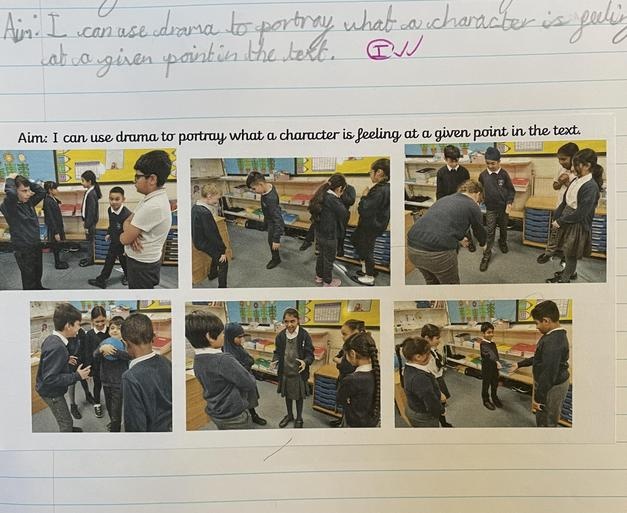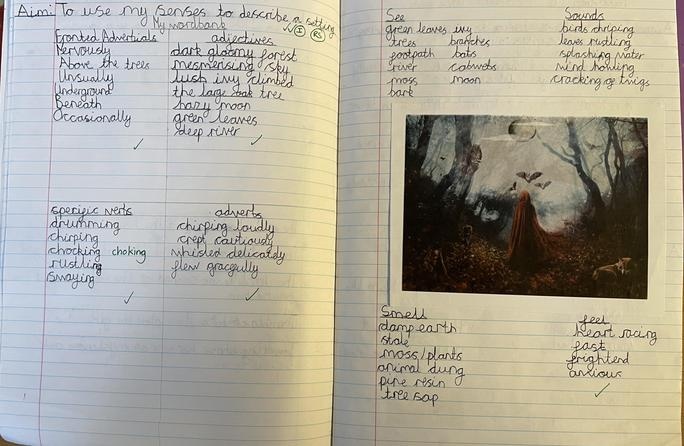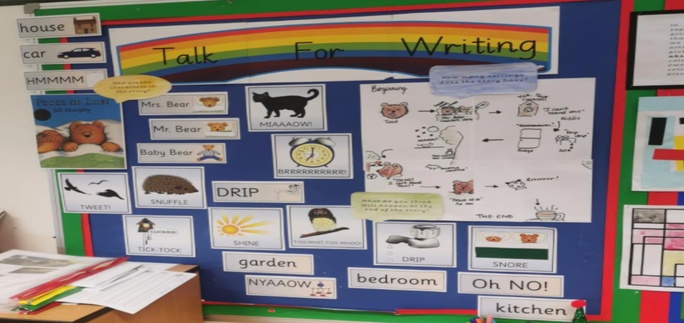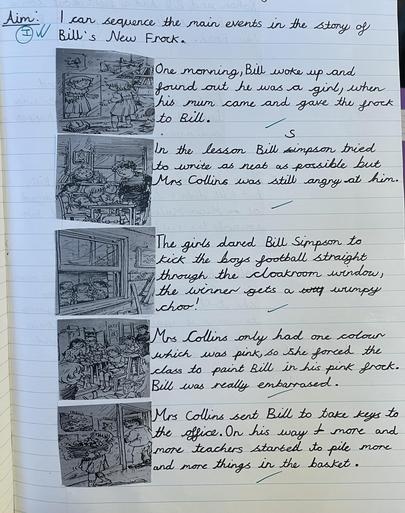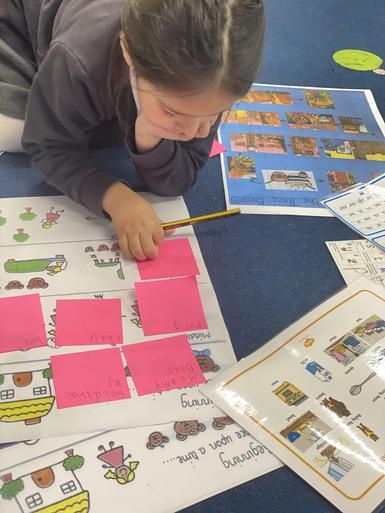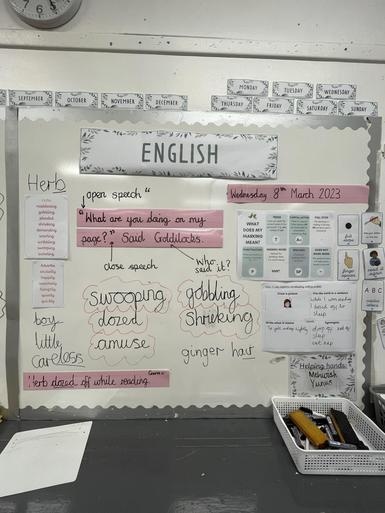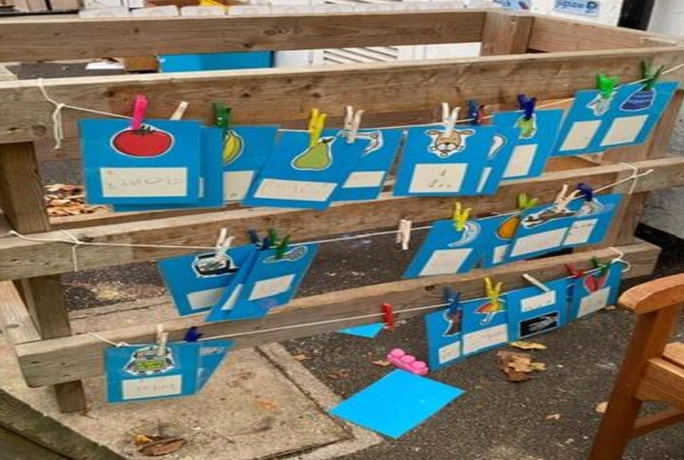Writing
Writing Curriculum Statement
It is our intent at CPA to provide pupils with a high-quality education in English that will teach pupils to speak, read and write fluently so that they can communicate their ideas and emotions to others effectively.
We want our children to have a positive attitude towards communication and to be able to independently express their emotions and their ideas. Through our English Curriculum, we strive to teach the children how important their reading, writing, speaking and listening skills will be in the real world. By giving this context to their learning, the children understand the value of English to them now, and in their futures.
We intend for pupils to be able to independently plan, revise and evaluate their own writing. To be able to do this effectively, we use current research in Cognitive Science to develop our pedagogy.
Our Writing curriculum is implemented effectively through a set of core concepts. This enables children to incorporate new information into their growing schema as they move up through the school.
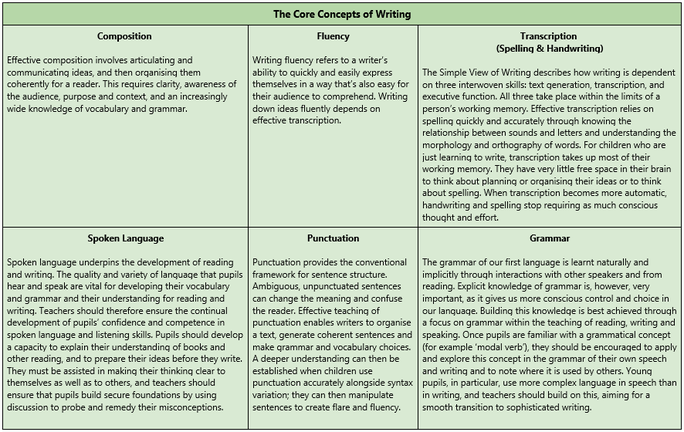
Our Writing curriculum is mapped using these core concepts. We plan for progression using our skills ladders. Lesson content is planned towards these progression points and follows the model of direct instruction, sentence-level work, shared and modelled practice before culminating in independent practice and mastery. Specific knowledge is acquired through the knowledge organisers in each curriculum area and unit of study to ensure broad and balanced coverage and as a tool for children to add to, revise and structure that knowledge.
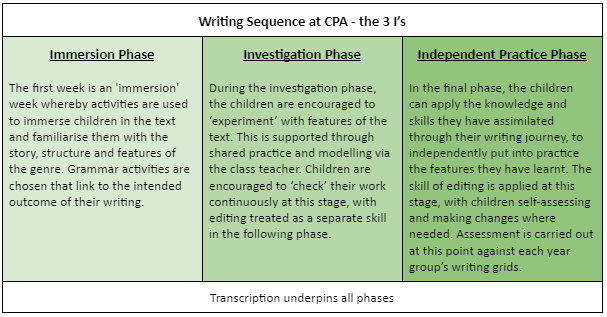
The writing curriculum is carefully planned alongside the aims of the National Curriculum guidance for Key Stages 1 and 2 with clear progression across year groups. Pupils in EYFS will be provided with every opportunity to engage in writing and talk around writing through the use of role play, small world scenarios and phonics sessions. The curriculum is planned to ensure that a wide range of literature from different cultures and heritages is explored and valued. CPA has worked in close partnership with CLPE (Centre for Primary Literacy) and the English Hub to select high quality core texts and to create writing sequences whereby pupils are provided with opportunities to write for real purposes and real audiences.
Our pupils have opportunities to apply and showcase their writing skills across the curriculum through a wide range of activities such as achievement assemblies, Remarkable Writing and Poetry Week.
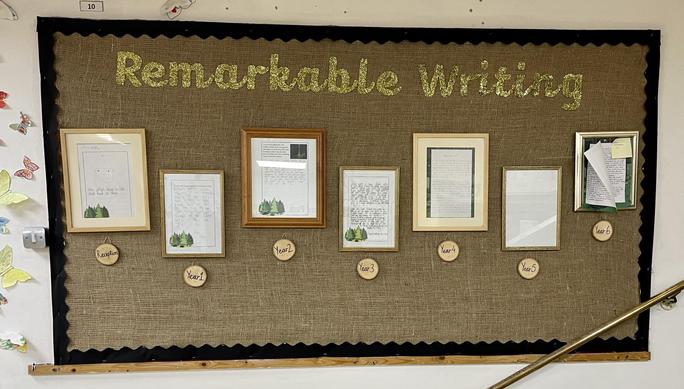

The impact of our Writing curriculum is measured against the following:
Writing grids: in each year group, the children’s independent Writing pieces are assessed against objectives that are age-specific. These have been developed in consultation with our Federation assessment leads, with advice sought from borough trained moderators and in line with the DfE end of key stage assessment frameworks.
Federation Moderation: each term, year teams attend a moderation session with other members of Federation in their year group. This is an opportunity for staff to compare their books, share good practice, and critically assess their judgement with like-minded colleagues.
Summative tests: Spelling, Punctuation & Grammar tests are carried out half termly in each year group, in addition to the end of KS1 & KS2 assessments. A gap analysis is carried out from these, with any trends identified and targeted to ensure children are being supported in making progress.
The children are supported to develop their writing skills through verbal and written feedback from their class teacher. Each class is aware of the marking criteria and symbols, and children are supported in using this feedback to edit and improve their work, through the use of a purple pen.
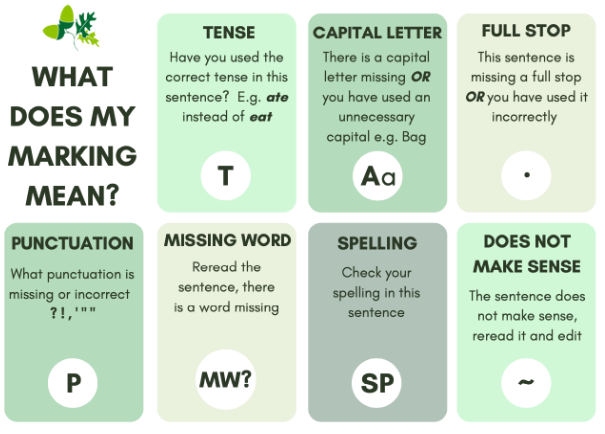
Writing Curriculum Overview
Resources To Support At Home

